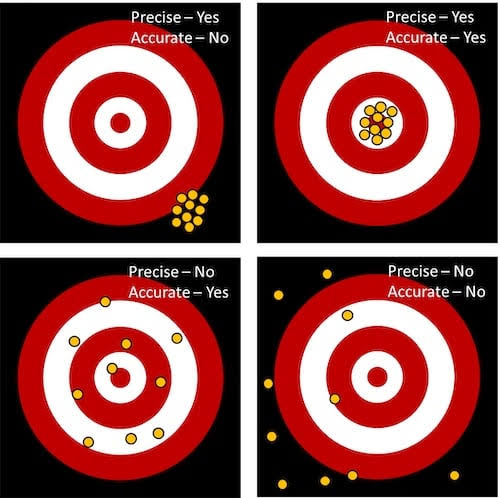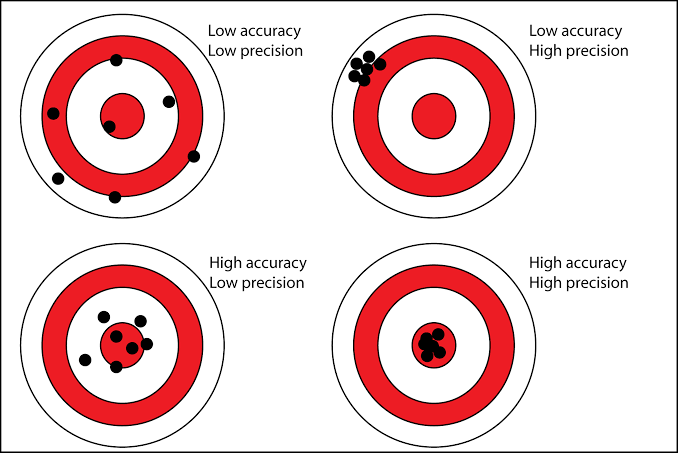Let me tell you one more way to interpret precision: it's a measure of an instrument's capability to reproduce the same readings during trials.
The term precision is used to describe the degree of freedom of a measurement system from random errors. Thus, a high precision measurement instrument will give only a small spread of readings if repeated readings are taken of the same quantity.(source)
There can be many ways to say the same thing but its essence remains unchanged. Here, the essence of the word precision is the ability to be precise. Precise comes from Latin "praecis-" ‘cut short’, it's how sharply an instrument can measure something. If a tool lacks precision, readings will vary with each trial, whereas a precise tool will generate identical readings most times.
A precise instrument may or may not give correct readings. The ability to give correct measurements is called "accuracy". An accurate instrument may not be precise. Accuracy is often confused with precision; here is a good illustration:


